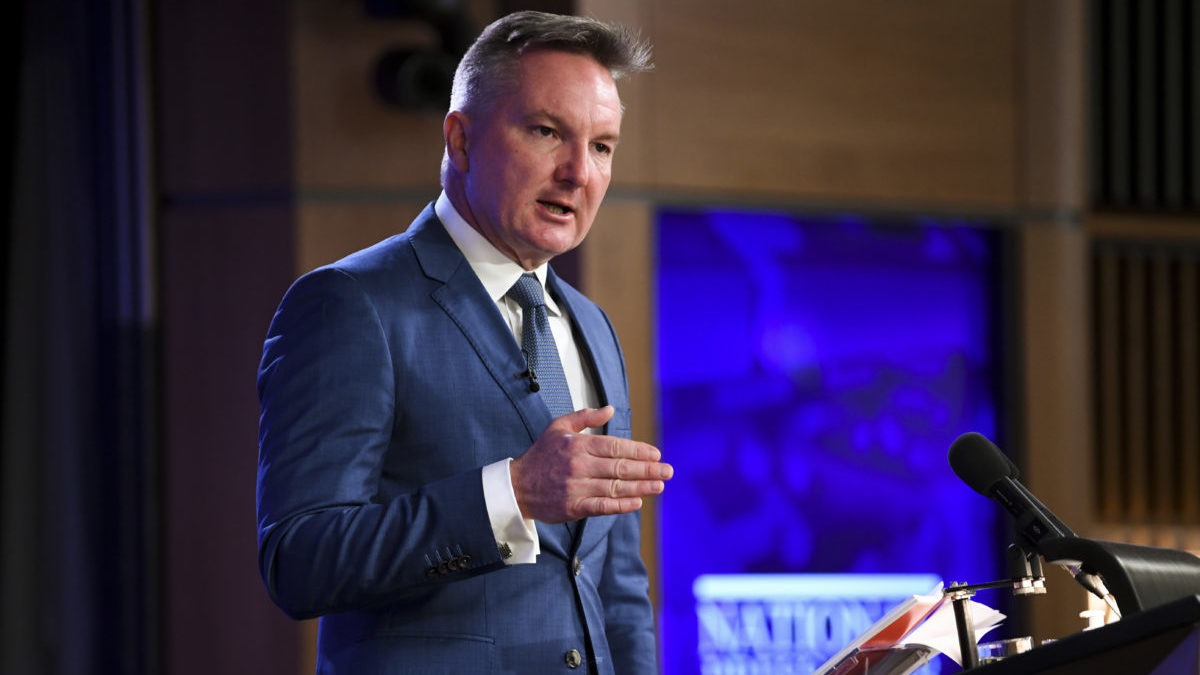An Albanese government would overhaul the regulatory processes for major transmission network projects, with Labor wanting to increase the level of engagement with local communities and ensure projects are designed to provide the best value for energy consumers.
Speaking at the Energy Networks Australia conference in Brisbane on Friday, Labor’s climate and energy spokesperson Chris Bowen said he did not think the existing RIT-T process that regulates major network investments was ‘fit for purpose’, and was failing to serve community interests.
The comments are important because Australia will likely need to invest tens of billions into new network links to help the transition from coal to renewables, and Labor has pledged its own $20 billion fund to help this happen. But some plans have already met with local opposition.
“A near-total rebuild of the grid comes with challenges, particularly for the communities where projects will be built,” Bowen told the conference.
“We are seeing that right now in relation to the Western Victoria Transmission Network Project, as well as the HumeLink project. It would be easy, but wrong, to dismiss those concerns as just NIMBYism.”
“In my experience, most concerned community members are not anti-renewables, anti-transmission or anti-progress. Nor, in most cases, are they opposed to the projects going ahead if their concerns are addressed”
“To me, the situation in Western Victoria has confirmed my inclination that the RIT-T process is no longer fit for purpose, especially when you consider the massive scale of transmission upgrades we have to complete over the next decade,” Bowen said.
Bowen said heeding the concerns being expressed by the communities set to host major network projects would be critical to successfully delivering the ambitious network overhaul articulated in AEMO’s Integrated System Plan.
“It’s vital that we learn that lesson, because without social licence, we will struggle to deliver the ISP, or the renewable economy it is designed to unlock,” Bowen said.
“And so today, I announce that an Albanese Labor Government would work with the states, market bodies, networks, and most importantly communities, to improve the RIT-T process,” Bowen added.
The RIT-T process – the Regulatory Investment Test for Transmission as it is known in full – is a regulatory scheme that provides the Australian Energy Regulator oversight of major network investments to ensure that they are both necessary and designed to provide the best value for money for energy consumers.
With the cost of major network projects ultimately passed through to consumers, and major network projects effectively enjoying guaranteed profits as ‘regulated assets’, the RIT-T is supposed to ensure the interests of consumers are considered in the design process.
However, the process has struggled to keep pace with the emergence of new technologies that can serve as alternatives to significant network upgrades. The complexity of the process also makes it difficult for communities to get their voices heard.
With a growing list of new transmission network projects needed to support the development of new wind and solar projects, including state government plans for the creation of dedicated Renewable Energy Zones, there have been calls for the RIT-T process to be improved to better incorporate the views of communities concerned by the prospect of large transmission lines and towers being constructed nearby.
Bowen said Labor would seek to reform the RIT-T process in three ways; increasing the expected level of community consultation, increasing the consideration of social and economic factors when making network investment determinations, and streamlining the process to ensure new projects can proceed to construction without unnecessary delay.
“Affected communities should be heard much more clearly in the RIT-T process, and indeed throughout transmission planning,” Bowen said. “That should include genuine engagement from the start, not the end, of the process.”
“Community members will often have well-informed views about where and how a project can best be implemented.”
“For example, they may know how to minimise impacts on their landscapes by using existing easements for wires and industrial precincts for transfer terminals.”
Bowen also hit back against claims levelled by federal energy minister Angus Taylor that Labor’s proposal to invest up to $20 billion through its ‘Rewiring the Nation’ plan in new transmission network projects would amount to unnecessary ‘gold plating’.
In his own address to the conference, Taylor claimed that Labor’s plan would include “non-priority” projects identified under AEMO’s Integrated System Plan.
“Households and businesses cannot afford a repeat of the doubling of electricity costs they saw under Labor driven by the carbon tax and ‘gold-plating’ of our poles and wires,” Taylor said.
But Bowen hit back, saying the Morrison government’s approach to network investments has been ‘ad-hoc’, without clear criteria for supporting projects and has failed to deliver most of its promised investments.
“Of the 13 committed, anticipated and actionable projects in the latest draft ISP, the Government highlights its support for five,” Bowen said. “It’s not clear why those five projects and not the other eight.”
“In any case, there is no standing opportunity for proponents or jurisdictions to seek Commonwealth support, and there is no competitive process by which the merits of Commonwealth support for one project can be weighed against another.”
“Even where it has announced support, the Government has demonstrably not done enough to help proponents and regulators move projects forward,” Bowen added.










